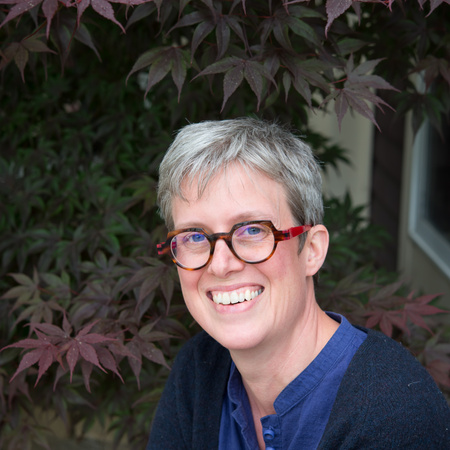Resources for Faculty
The Maine Women Writers Collection offers many options to enhance teaching in the classroom. Primary source materials engage students in active learning and help them to gain a unique perspective on their research.
Classroom Instruction
We can provide an overview of archives and special collections research, or build an entire course around archives-based work. Possible instruction sessions include:
- Introduction to Archives
- This session can happen in the classroom or in the archives. We will give an overview of the MWWC holdings, demonstrate how to use a finding aid, and facilitate a hands-on exploration of documents. We can select materials tailored to your course, or focus on a specific document type such as correspondence or diaries to help students explore ideas.
- Class Research Visit
- We can provide whole collections or groups of materials for students to explore during class time. Sessions can take place in the MWWC,the Ketchum Library, or the location which will best accommodate your class needs. Research visits allow students to explore the nature of archival collections or published materials, and develop research skills with primary sources. Students are encouraged to ask questions with guided activities designed by MWWC staff or in collaboration with faculty.
- Guest Lecture
- We are happy to create a focused lecture or interactive presentation that will fit into your course design.
- Curriculum Assistance
- The most rewarding outcomes of archival instruction happen when faculty and archives staff collaborate on course design. We have worked with faculty to create multi-class units on a subject and regularly visited classes to help support students in engaging with primary sources. Contact us to see what is possible and brainstorm about how primary sources can support your course learning outcomes.
Previous Classes
- Introduction to Women’s Gender Studies; professor Elizabeth DeWolfe
- This class participated in a Wikipedia-Edit-A-Thon to create pages for women of note. Many Maine women were highlighted in this project, with students using the MWWC to do primary source research. WikiEdu highlighted the project on their blog.
- Writing and Women’s Health; Professor Jennifer Tuttle
- This course offered students the option to write their analytical essay on primary sources in the MWWC. Students wrote about a variety of items, from Abraham Myerson’s The Nervous Housewife (1920) to May Sarton’s journals. Many of the students focused on artist’s books in which Martha Hall explored her experience with breast cancer.
- Introduction to Environmental Issues
- Students in ENV 104 classes were offered instruction in drawing skills, had the opportunity to meet book artist Rebecca Goodale, and explored many of her books about Maine’s threatened and endangered plants. Throughout the semester, students worked on their own ecological observation booklets and created a final book to be exhibited in the Ketchum Library on the Biddeford campus. This fusion of arts and science offered students new ways of looking at their environment and provided a unique forum for building observation skills and confidence.
- Institutionalized Racism and the Politics of Justice: Disproportional Incarceration of Native Americans in the State of Maine; thesis by UNE Graduate Joseph Gousse
- As the first UNE student to use the Donna Loring papers in the completion of a thesis. Joseph had the opportunity to speak directly to Donna Loring and gained important insights using materials written by Maine’s tribal leaders.

Questions & Help
Contact Education and Outreach Archivist Cathleen Miller with questions or to set up instruction for your classroom.

